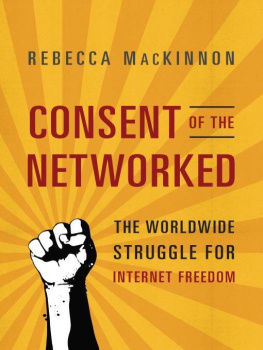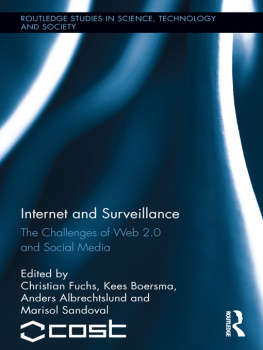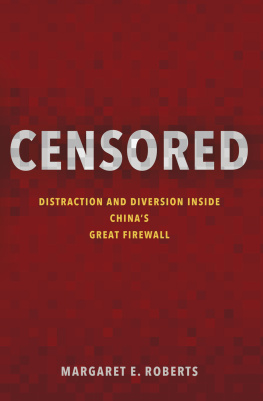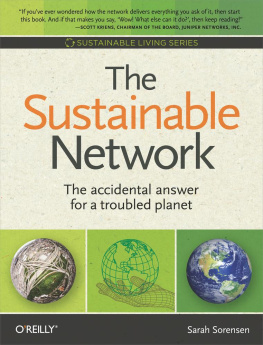Table of Contents
For Mom
Janice R. MacKinnon
19431999
PREFACE
One night in Beijing in 1998, I went to dinner with a few Chinese friendsall artsy intellectuals, journalists, and hip liberal types. As we dug into a mound of spicy Szechuan chicken and washed it down with lukewarm local beer, I described a book I had just finished reading: The File by Oxford historian Timothy Garton Ash. It tells the story of how after the Berlin Wall came down and the Iron Curtain crumbled, East Germans suddenly had access to the files the Stasi had been keeping on them. People found out who had been ratting on whomin some cases neighbors and coworkers, but also lovers, spouses, and even sometimes their own children.
After I finished talking, one friend put down his chopsticks, looked around the table, and proclaimed, Someday the same thing will happen in China. Then Ill know who my real friends are. The table fell silent.
If and when China does change, that day of reckoning may never come. In the age of broadband and smart phones, state security agents no longer depend so heavily on human informants. Not only are software and hardware more efficient and omniscient than humans, but conveniently they also lack consciences.
As a Beijing-based journalist working for CNN from 1992 to 2001, I found the Internets arrival to be tremendously exciting. Most Western journalists and diplomats in China at the time assumed that the Communist Partys grip on power could never survive this new globally networked technology. A decade later, after leaving TV journalism and becoming an independent writer, researcher, and activist, I grew to realize that we were naive. Though the Internet has transformed Chinese society in many ways, the regime has also succeeded in adopting technology to its advantage in ways I had not imaginedways I have spent much time over the past several years trying to understand.
After I left China in 2001 and moved to Japan as CNNs Tokyo bureau chief, my fascination with the Internets effect on global politics broadened. On a trip to South Korea, I reported on how Roh Moo-hyun won the presidency in December 2002 by a narrow margin thanks to eleventh-hour online and mobile activism by readers of OhMyNews, one of the worlds first online citizen journalism ventures. In January 2003 a friend introduced me to Where is Raed? the blog of an Iraqi man in Baghdad writing under the pseudonym Salam Pax. As the United States and its allies prepared to invade, he ranted cynically against Saddam Husseins regime, the Bush administration, and almost everyone and everything else. As the web publishing magnate Nick Denton aptly put it, he was the Anne Frank of the war... and its Elvis. As I started following blogs written by other less famous but no less eloquent people all over the worldpeople who were not professional journalists but who were witnesses or parties to events that no mainstream Western news media had reportedit was clear that the Internet-driven citizen media revolution had implications not only for the future of journalism but also for geopolitics.
In January 2004 I took what was supposed to have been five months leave from CNNs Tokyo bureau to spend a semester at the Shorenstein Center on the Press, Politics, and Public Policy at Harvards Kennedy School of Government, where I made it my full-time job to learn about the new world of citizen-driven online media. I started blogging. A couple of months into my leave, I decided to stay at Harvard and not to return to CNN. I moved to a new think tank called the Berkman Center for Internet and Society, the epicenter of new thinking and experimentation on citizen media and networked politics.
To keep my Chinese from getting too rusty, I began to follow Chinese blogs. Reading bloggers observations, musings, and conversations helped me to keep up with events, cultural trends, and controversies in China in a way that would have been impossible without the Internet. As it so happened, another colleague, Ethan Zuckerman, closely followed blogs from Africa and the Middle East. Ethan and I started to think about how we might support and amplify the work of bloggers who write about events in their countries, sharing insights and information not reported in the mainstream media. At the end of 2004 we organized a brainstorming meeting of bloggers from all over the world and called it Global Voices Online.
The discussions that day inspired our group to build an online community to help promote and support the work of civic-minded bloggers around the world. A conference blog evolved into a complex website. Today Global Voices is a full-blown nonprofit organization. Bloggers living all over the world work to curate, explain, summarize, and translate postings related to current events on blogs and other social media like Facebook, Twitter, and YouTube. Another team gives small grants to citizen media projects in the developing world. Yet another team translates Global Voices content back and forth across roughly two dozen languages. Last but not least, our activist team runs a network devoted to raising awareness about threats to online free expression and assembly, helping people navigate censorship and protect themselves against surveillance. As protests erupted in Tunisia in late 2010 and demonstrations spread around the Middle East and North Africa in early 2011, Global Voices contributors worked around the clock to spread information about what was happening in multiple languages, on our own site as well as Twitter, Facebook, and other social media platforms.
As Global Voices grew, I continued to follow the evolution of Chinese blogs and social media, returning regularly to China to attend blogger gatherings and getting to know some of Chinas boldest online activists. I also began to research Chinas Internet censorship system. Other researchers had begun to study Chinas great firewallthe system by which a large number of overseas websites are blocked from view on the Chinese Internet. I soon realized, however, that website blocking was just one part of the Chinese governments strategy to control the online activities of Chinese citizens. A core component of that strategy involves censorship and surveillance carried out not by government agents or Internet police but by the private sector. After Yahoo, Microsoft, Cisco, and Google came under fire at a 2006 congressional hearing for their role in Chinese censorship and surveillance, I began to be asked regularly to write and speak about the problem of corporate collaboration in Chinese censorship and surveillance. I joined a group of Internet companies, human rights organizations, socially responsible investors, and academics who together in 2008 launched the Global Network Initiative, an organization that has established standards for free expression and privacy for the Internet and telecommunications sector, to which it seeks to hold companies accountable.
Five years ago when I first considered writing a book, I was inclined to focus on China as exhibit A for how an authoritarian regime can not only survive, but also thrive in the Internet age with the help of domestic and multinational corporations. My experience with Global Voices and as an advocate for online free speech on an international scale, however, has also taught me that the root causes are broader. The technologies and policies that make surveillance and censorship possible in China and many other countries are closely connected to policy, business, and technical decisions being made by governments and companies in the democratic West. Sometimes those decisions are made by people who understand the implications of their actions but simply have other priorities. Others have good intentions but are ill-informed about the dynamics of power, control, and freedom across a global Internet.









